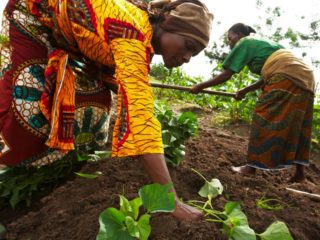FAO says $30m urgently needed to avoid hunger crisis in Nigeria, 3 other countries
The Food and Agriculture Organisation (FAO), an agency of
the United Nations (UN), has said the international community must urgently provide
immediate emergency support of $30 million to countries in the Lake Chad Basin
including Nigeria, Chad, Niger and Cameroon to help farming families get ready
to plant in the upcoming May planting season and prevent them from slipping
into long-term dependency on food aid.
Nigeria, FAO said, is bearing the brunt of the crisis.
The agency called on the international community to take
urgent action to avoid a looming hunger crisis in Nigeria and neighbouring
countries in the Lake Chad Basin.
 |
| FAO Director-General José Graziano da Silva |
The looming hunger crisis which arose as a result unrelenting
conflict and instability in the region threatens the livelihoods of millions of
families who are dependent on farming, livestock and fishing for their food.
The FAO, in a statement yesterday, warned that the food
security situation in Nigeria and the Lake Chad Basin will continue to
deteriorate if swift and decisive action is not taken by the international
community to arrest the situation in before the next planting season starting
in May.
Dominique Burgeon, Director of FAO's Emergency and
Rehabilitation Division, said "In the worst-affected areas, famine
continues to loom -- and millions will remain trapped in cycles of severe
hunger if we don't enable farmers to start cropping now. Our collective efforts
cannot be limited to merely avoiding massive famine - they need to allow people
to return to a dignified life. And supporting agriculture is the key to both. "
Some 7.1 million people are now severely food insecure
across the four countries. Among them are 515 000 children who are suffering
from severe acute malnutrition - a condition which, if untreated, can lead to
permanent damage to a child's development and even death.
FAO is collaborating with the World Food Programme to ensure
vulnerable families -- mainly internally displaced people and host communities
-- receive food assistance, and at the same time agriculture-based livelihood support in the
form of provision of seeds, tools and fertilizer. This way, they will able to
restore and protect their livelihoods and farming assets for ongoing food production.



Comments
Post a Comment